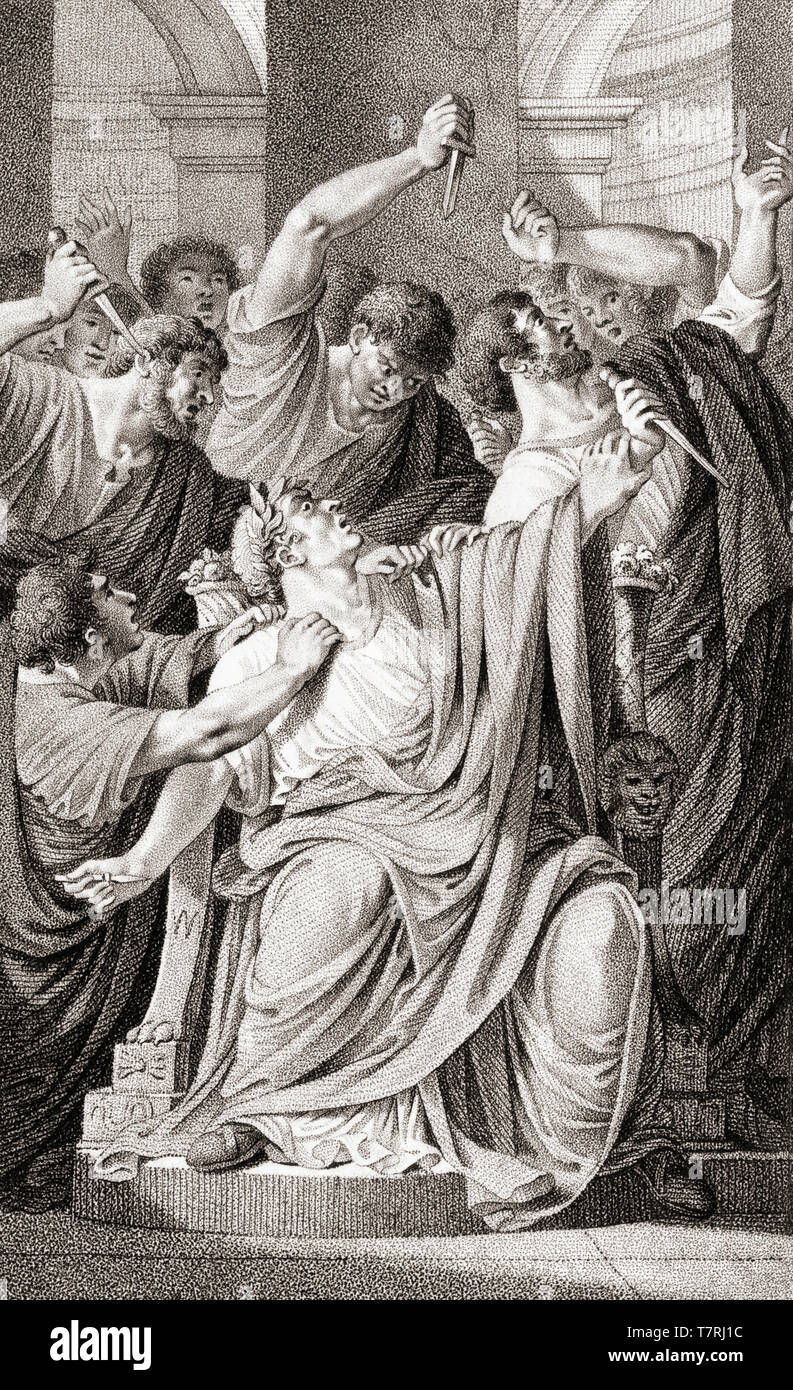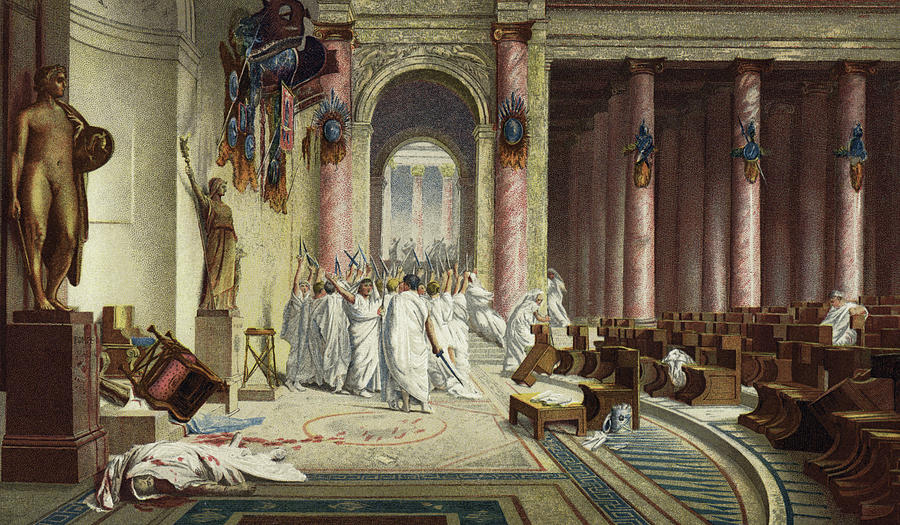
A few months before, when the settlers assigned to the colony at Capua by the Julian Law were demolishing some tombs of great antiquity, to build country houses, and plied their work with the greater vigor because as they rummaged about they found a quantity of vases of ancient workmanship, there was discovered in a tomb, which was said to be that of Capys, the founder of Capua, a bronze tablet, inscribed with Greek words and characters to this effect: Now Caesar's approaching murder was foretold to him by unmistakable signs.

When, however, a meeting of the Senate was called for the ides of March in the Hall of Pompey, note they readily gave that time and place the preference. At first they hesitated whether to form two divisions at the elections in the Field of Mars, so that while some hurled him from the bridge note as he summoned the tribes to vote, the rest might wait below and slay him or to set upon him in the Sacred Way note or at the entrance to the theater. More than sixty joined the conspiracy against him, led by Gaius Cassius and Decimus and Marcus Junius Brutus. This man, because he put the consuls down, Some wrote on the base of Lucius Brutus' statue, "Oh, that you were still alive" note and on that of Caesar himself:īecause he drove from Rome the royal race,īrutus was first made consul in their place. When Quintus Maximus, whom he had appointed consul in his place for three months, was entering the theater, and his lictor in the usual manner called attention to his arrival, a general shout was raised: "He's no Consul!" After the removal of Caesetius and Marullus from office as tribunes, they were bound to have not a few votes at the next elections of consuls. The Gauls he dragged in triumph through the townĪnd changed their breeches for the purple gown. On the admission of foreigners to the Senate, a placard was posted: "God bless the commonwealth! Let no one consent to point out the House to a newly made Senator." The following verses too were repeated everywhere:

Therefore the plots which had previously been formed separately, often by groups of two or three, were united in a general conspiracy, since even the populace no longer were pleased with present conditions, but both secretly and openly rebelled at his tyranny and cried out for defenders of their liberty. In order to avoid giving assent to this proposal the conspirators hastened the execution of their designs. The following fragment from his Lives of the Twelve Caesars (" Caesar" 80-82) was translated by Joseph Gavorse.

There are several accounts of this incident, but the most famous and probably most accurate is the one written by Caesar's biographer Gaius Suetonius Tranquillus (c.70-c.135), who seems to have had access to imperial archives and may have consulted eyewitness accounts. On 15 March 44 BCE, the Roman dictator Julius Caesar was murdered. The assassination, however, would also mark the death knell of the Roman Republic soon afterward, Rome spiraled into a civil war.Gaius Suetonius Tranquillus (c.71-c.135): Roman scholar and official, best-known as the author of the Lives of the Twelve Caesars. Two days after the assassination, Marc Antony summoned the Senate and forged a compromise under which the assassins would not be punished, but all of Caesar’s appointments would remain valid. The autopsy report - the earliest known postmortem in history - describes Caesar’s death as mostly attributable to blood loss from his wounds. Suetonius relates that a physician who performed an autopsy established that only one wound - the second one to his chest - had been fatal. Two days before the assassination, Cassius told them that, should anyone discover the plan, they were to turn their knives on themselves.Ĭaesar attempted to get away from his assailants, but, blinded by blood, he tripped and fell the men continued stabbing him - 23 times. Caesar had been preparing to invade the Parthia - a campaign subsequently undertaken up by his successor, Mark Antony, without lasting results - and planned to leave Rome in the latter half of March to oversee the attack.


 0 kommentar(er)
0 kommentar(er)
